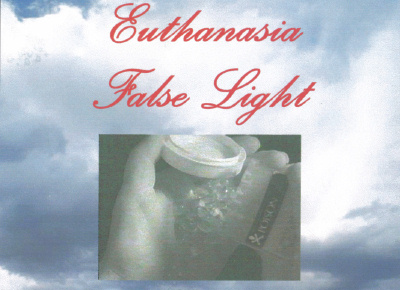MASSACHUSETTS
COMPASSIONATE CARE FOR THE TERMINALLY ILL ACT
(H 1998)
On Tuesday, November 6, 2012, Massachusetts citizens defeated a measure (Question 2) that would have permitted doctor-prescribed suicide. The ballot question cannot be put before voters again until 2018. However, assisted-suicide advocates indicated that they would try once again to address the issue in the legislature.
On January 16, 2013, Representative Louis L. Kafka — who has introduced other doctor-prescribed suicide bills that failed — filed the “Massachusetts Compassionate Care for the Terminally Ill Act” (H 1998). H 1998 is still pending.
Patterned on the Oregon and Washington assisted-suicide laws, the bill differs, in part, with those laws, creating additional loopholes that place vulnerable patients at risk.
The bill:
- has a provision permitting a physician to dispense a lethal prescription without requiring a second physician to affirm the patient’s diagnosis and prognosis. [Section 7 (2) (a)]
- does not require that the prescribing physician refer a depressed or mentally ill patient for a psychiatric or psychological consultation unless the physician believes that the patient’s depression or mental illness is causing impaired judgment. [Section 8]
- does not require any waiting period between the time the patient is diagnosed with a terminal condition and the time the lethal dose is prescribed. It requires only one written request without any mandated oral requests. [Section 3]
- requires two people to witness the written request. However one of those witnesses can be a relative, an heir, or the employee of a health care facility where the patient is receiving medical care or is a resident. [Section 3 (3)]
- may permit an appointed health care agent to request the lethal dose on behalf of the patient. Massachusetts law provides that a health care agent “shall have the authority to make any and all health care decisions on the principal’s behalf that the principal could make.” [M.G.L.A. 201D § 5]
Nothing in the bill explicitly prohibits a health care agent from making the written request on behalf of the patient.
Therefore, as written, the Massachusetts bill would permit a physician to:
Determine (correctly or incorrectly) that a patient has a terminal condition and, even though the patient is depressed, does not have impaired judgment;
and
Write the lethal prescription on the same day as the diagnosis, based on the patient’s written request which was witnessed by the patient’s emotionally controlling spouse and a close friend of that spouse.
Back to main Massachusetts page




